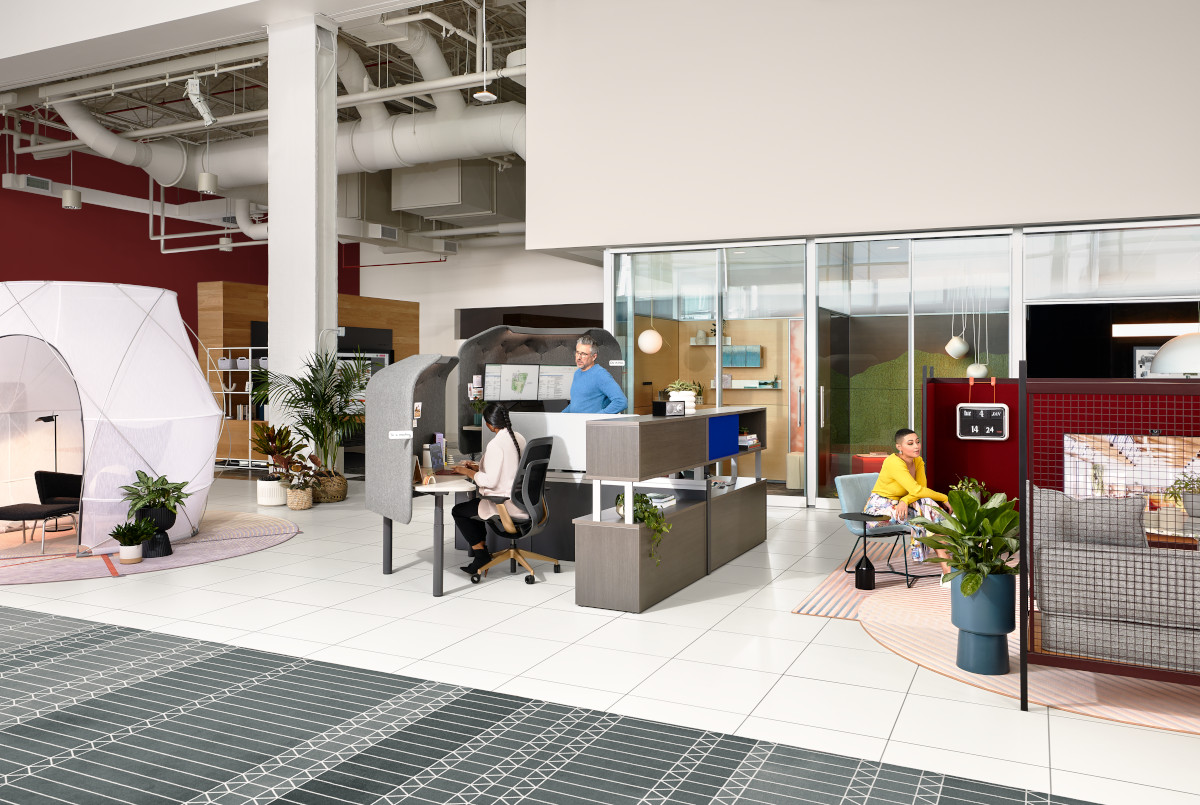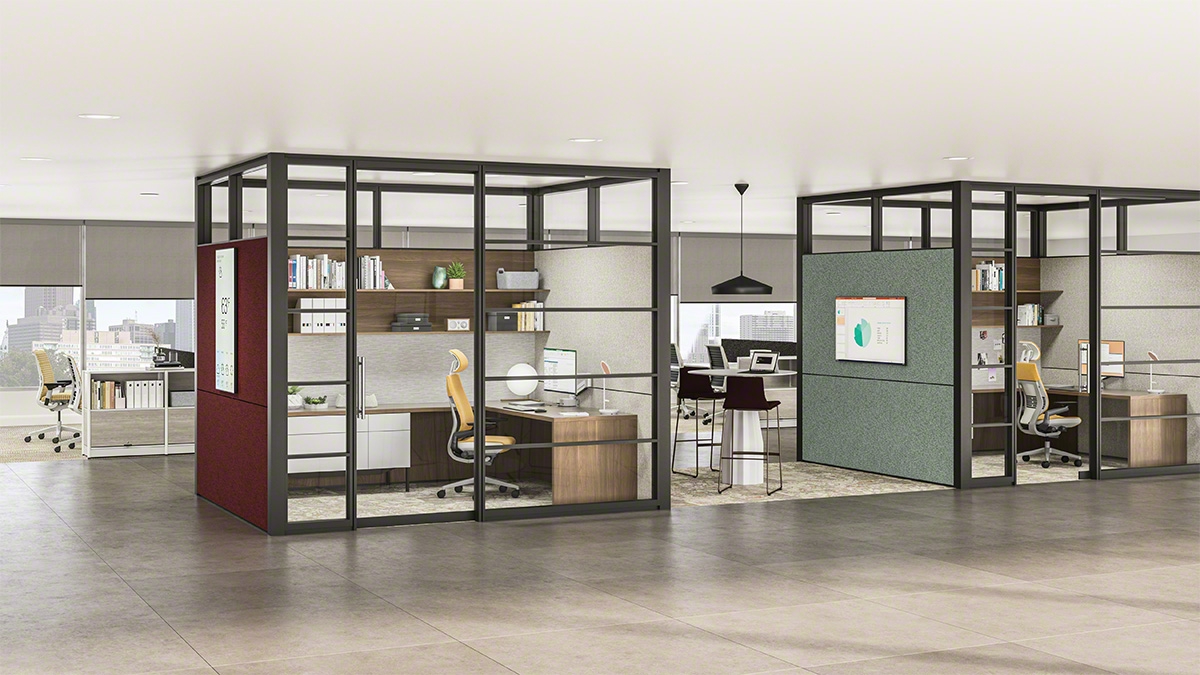As people return to offices it’s clear they will expect the same flexibility and autonomy they enjoyed while working from home.
But hybrid work is not just about giving people flexible schedules. Flexibility must also be built into the workplace itself to meet the evolving needs of hybrid work — which, according to research from our partner Steelcase and observations from around the world, is constant.
But there’s a problem. Traditionally, most workplaces are designed to be more fixed than fluid and don’t give people much control at all.
And when conditions change, such as when a pandemic hits or the way we work changes, spaces can’t adapt easily.
But they need to for two reasons:
- People expect more individual control, especially when they can’t find places for focus work or video calls, which have exploded.
- Organizations need the flexibility to quickly and easily make bigger changes to their space, as they try to figure out what types of spaces their people will need for hybrid work.

Individual Control
The ability for people to control their environment has become even more critical as fewer people have owned workspaces, compared to pre pandemic. Places where people can find privacy will be among the most coveted in a hybrid neighborhood. According to the most recent research from Steelcase, three of the top four elements people value more now relate to private spaces. Without a dedicated workstation, flexible spaces can help people reduce visual and acoustical distractions and achieve the level of privacy they need for focus work or video calls.
We have seen employees create spaces with varying levels of privacy by wrapping workspaces with freestanding privacy screens or mobile whiteboards. By adding elements to create visual privacy, people are able to concentrate significantly better than sitting in completely open areas. They’re also creating hybrid collaboration spaces by pulling together mobile tables, whiteboards and mobile carts that can house digital display devices in social spaces.
“If people make the effort to come into the office, they’ll expect a better work experience — where, like at home, they are comfortable and have greater control over their environment,” says Cherie Johnson, director, Steelcase Global Design. “We’ve seen for ourselves just how differently people are working now and the types of spaces they’re seeking, especially for hybrid collaboration and privacy, and there just aren’t enough. A lot of our spaces have been designed to be multi-modal to support more than one work mode. With the right flexible furniture elements, they can create the space they need on demand, without having to fill out a facilities change request.”
One of the most versatile spaces at the Steelcase Learning and Innovation Center in Grand Rapids is the Social Hub. It includes a range of settings with different privacy levels where different modes of work can happen simultaneously — collaboration, informal social interactions, learning and even focus work. Tools such as accessible power, mobile whiteboards and digital collaboration devices make the spaces highly flexible.

Organizational Control
No one knows exactly how the office needs to change for hybrid work and it will be different for every organization. The next couple of years will need to be an ongoing workplace experiment to understand what types of spaces best support hybrid work, and to be able to respond quickly, the workplace will need to be incredibly fluid and agile.
Adaptable architectural elements, such as Everwall adaptable architecture from Steelcase, Orangebox Pods or less conventional privacy solutions like Steelcase Work Tents can help maximize real estate and give organizations the flexibility they need to respond to changing needs.
“These adaptable privacy solutions can be easily moved by facilities teams to add more private spaces quickly,” says Johnson. “It’s never been more important to have highly flexible furniture and architectural solutions that can easily allow spaces to transform as needs change. These types of solutions will be critical for building a resilient real estate strategy.”
Contact us to learn more about solutions designed to support new ways of working.

